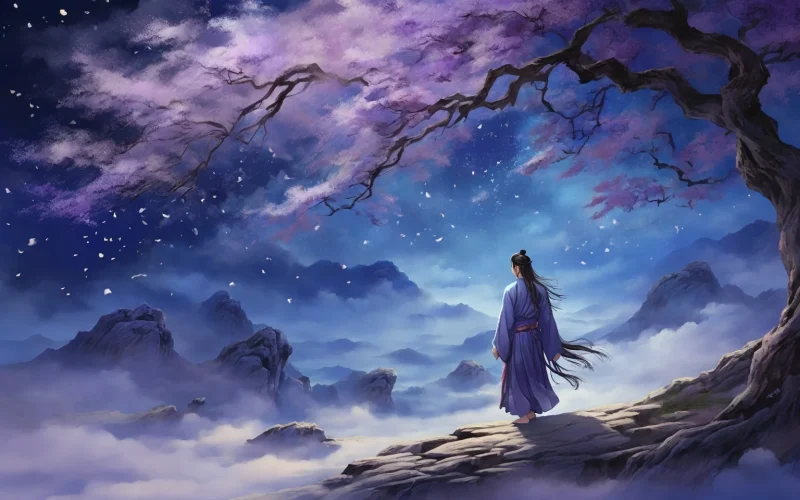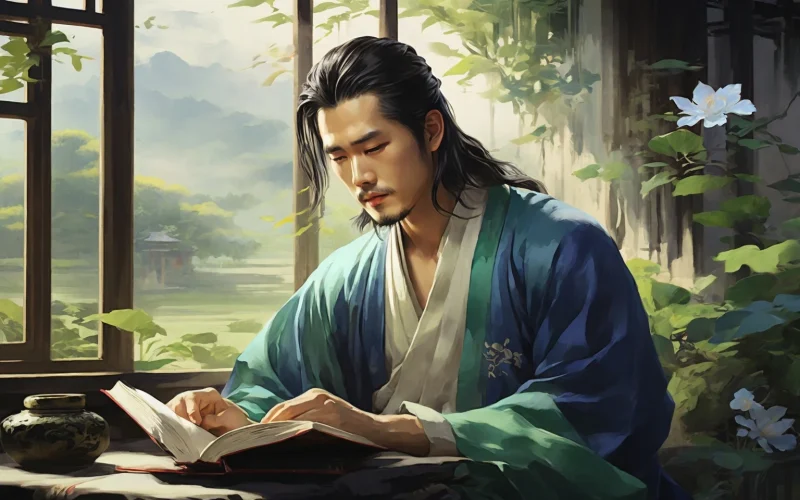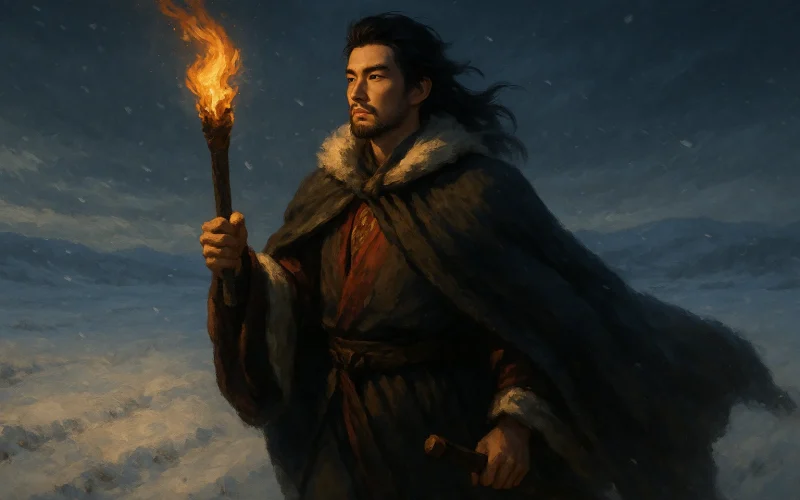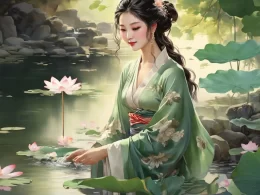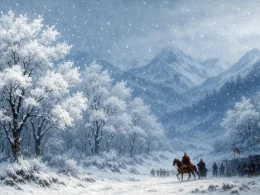Where there is life, there must be death;
In due time we'll breathe our last breath.
Last night we lived and filled our posts;
Today my name's among the ghosts.
Where is my soul fled far away?
But shriveled forms in coffin stay.
My children miss their father, crying;
My friends caress my body, sighing.
For gain or loss I no more care;
Right or wrong is not my affair.
Thousands of years will pass away,
And shame and glory of today.
But I regret, while living still,
I have not drunk wine to my fill.
Original Poem
「拟挽歌辞 · 其一」
陶渊明
有生必有死,早终非命促。
昨暮同为人,今旦在鬼录。
魂气散何之?枯形寄空木。
娇儿索父啼,良友抚我哭。
得失不复知,是非安能觉?
千秋万岁后,谁知荣与辱。
但恨在世时,饮酒不得足。
Interpretation
Composed in the late 5th century, this poem opens Tao Yuanming's triptych of self-elegies written in his twilight years. While traditional dirges mourned the deceased, these "imitations" represent the poet's imagined posthumous lament—both a meditation on mortality and an enlightenment about life's essence. Scholarly debates persist regarding Tao's death date (variously placed at 59 or 63 years old), leaving uncertain whether this was his poetic swan song. Yet the poem's serene acceptance and sorrow-transcending wisdom suggest mature philosophical reflection rather than momentary grief.
First Couplet: "有生必有死,早终非命促。"
Yǒu shēng bì yǒu sǐ, zǎo zhōng fēi mìng cù.
All that lives must die,
Early end doesn't mean fate's awry.
This axiom establishes death as natural as day yielding to night. The dispassionate tone dispels mortal fears, embodying Tao's transcendent worldview aligned with cosmic order.
Second Couplet: "昨暮同为人,今旦在鬼录。"
Zuó mù tóng wéi rén, jīn dàn zài guǐ lù.
Last eve we shared human state,
This dawn I'm logged in ghostly slate.
The subtle temporal shift underscores life's fragility with devastating simplicity.
Third Couplet: "魂气散何之?枯形寄空木。"
Hún qì sàn hé zhī? Kū xíng jì kōng mù.
Where does the spirit roam?
Shriveled shell in a hollow home.
Confronting bodily decay and existential void with philosophical rigor.
Fourth Couplet: "娇儿索父啼,良友抚我哭。"
Jiāo ér suǒ fù tí, liáng yǒu fǔ wǒ kū.
Toddler wails for vanished dad,
Dear friends mourn over what I had.
Humanizing the metaphysical discourse with poignant emotional resonance.
Fifth Couplet: "得失不复知,是非安能觉?"
Dé shī bù fù zhī, shì fēi ān néng jué?
No more knowing loss or gain,
How judge pleasure from pain?
Emphasizing consciousness's absolute cessation to deconstruct worldly attachments.
Sixth Couplet: "千秋万岁后,谁知荣与辱。"
Qiān qiū wàn suì hòu, shéi zhī róng yǔ rǔ.
After millennia untold,
Who'll remember stories cold?
Rendering fame and shame equally ephemeral against time's vast expanse.
Seventh Couplet: "但恨在世时,饮酒不得足。"
Dàn hèn zài shì shí, yǐn jiǔ bù dé zú.
Just regret while alive,
Never drank enough to thrive!
The capricious conclusion dissolves gravitas with wine as metaphor for uninhibited living.
Holistic Appreciation
The poem contemplates mortality through crystalline language where detachment and tenderness intertwine. Progressing from life's transience to mourning scenes, from consciousness's extinction to fame's futility, it culminates in wine-regret as paradoxical enlightenment - a man's unvarnished reflection that resonates through its authenticity.
Artistic Merits
- Plain diction, profound thought: Tao's signature simplicity belies layered wisdom, using unadorned language to provoke deep meditation.
- Reason-emotion synergy: Abstract mortality concepts gain humanity through grieving scenes, balancing intellect and compassion.
- Natural tonal shift: The finale's humorous twist—from solemnity to self-deprecation—epitomizes Tao's unique blend of wit and wisdom.
Insights
This poem tutors us in dying and living alike. Facing life's terminus, the poet chooses lucid acceptance; confronting worldly success, he dismantles its worth through "unknowing loss or gain" and "forgotten stories." The closing wine-regret champions authentic existence - offering modern readers a freer way of being.
Poem translator
Xu Yuanchong (许渊冲)
About the poet

Tao Yuanming(陶渊明), 365 – 427 CE, was a poet, literary figure, fu writer, and essayist active during the late Eastern Jin and early Liu Song dynasties. Born in Chaisang (near present-day Jiujiang, Jiangxi Province), he pioneered a new genre of pastoral-themed literature, expressing profound philosophical insights through simple language. His poetic style became an enduring aesthetic standard in classical Chinese poetry.





